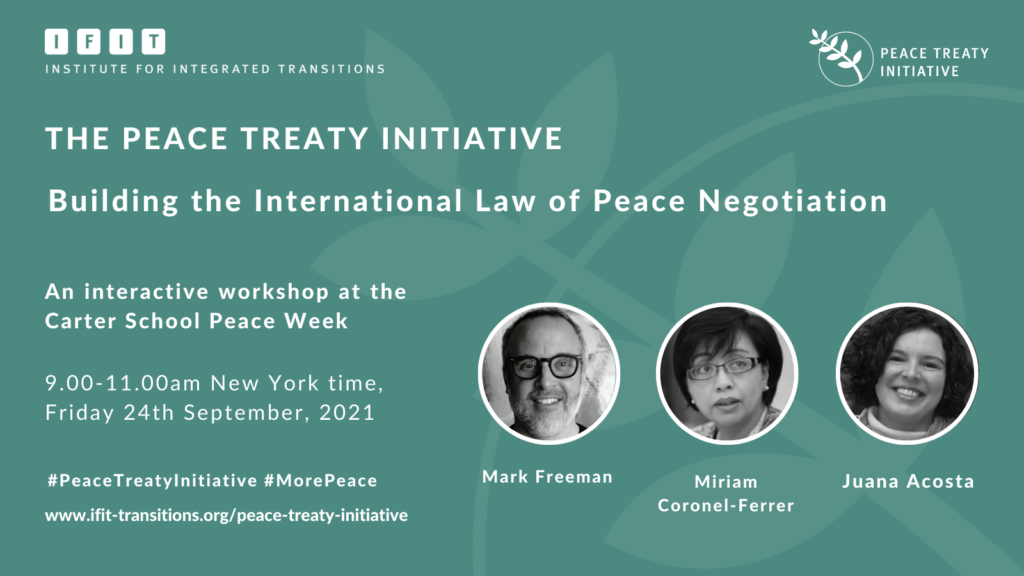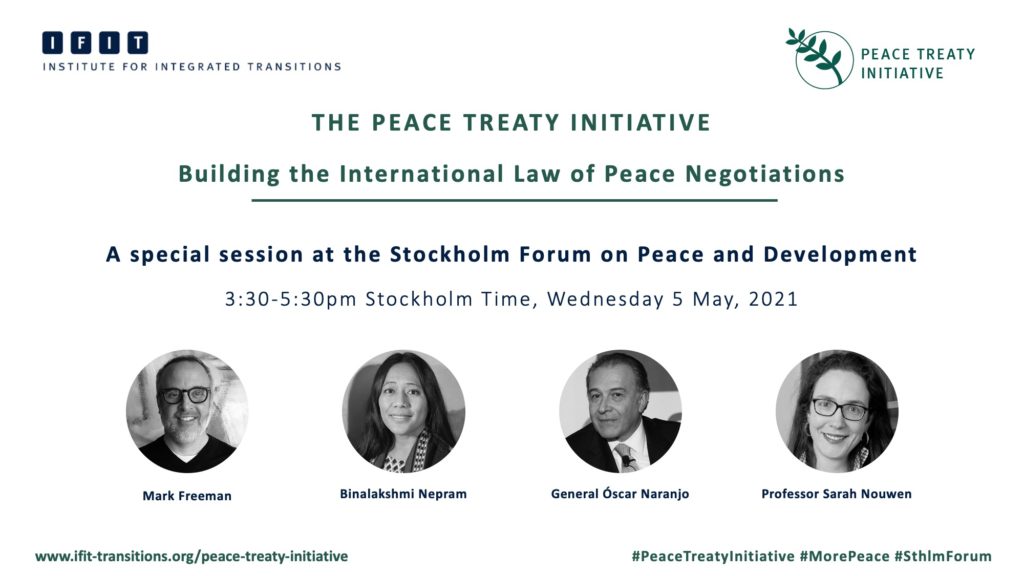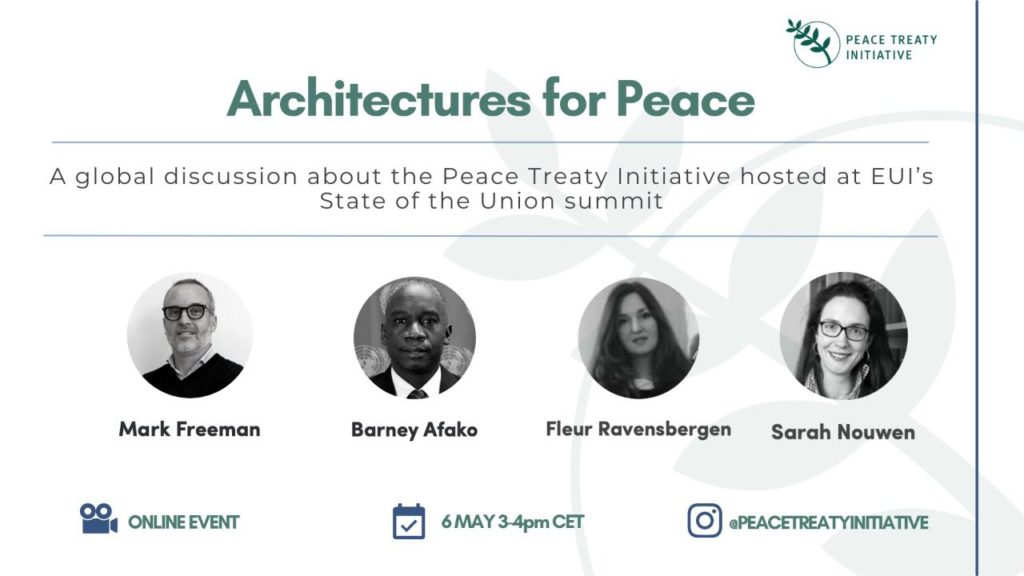Public Commentary / 22 June 2023
What do we really know about polarization? Q&A with Mark Freeman

Around the world, political and social divisions are deepening at faster rates than ever before. Political debate and differing opinions are integral to healthy societies, but polarization is different—and dangerous. A veritable threat to legitimate democratic systems and institutions, it threatens us all.
In its most severe form, polarization threatens national stability and impedes efforts to achieve equity and dismantle institutional oppression. When democratic norms—respect for human rights and dignity—are eroded, power becomes concentrated in the hands of a few, exacerbating challenges to advance social justice.
At the Ford Foundation, we asked ourselves, what would it take to create a more just society for all—one where opportunity is widespread, polarization is decreased, and there is a commitment to a shared understanding of the common good?
We realized we needed a partner to pursue this work. With colleagues at the Institute for Integrated Transitions (IFIT), we launched the Global Initiative on Polarization to deepen understanding of the diverse causes and consequences of severe polarization in democratic and nondemocratic settings. We hope to ultimately learn more about how to advance meaningful dialogue and social justice while effectively preventing and responding to polarization.
In a new discussion paper, “First Principles: The Need for Greater Consensus on the Fundamentals of Polarisation,” IFIT’s founder and executive director Mark Freeman draws on wide-ranging research, consultations, and convenings conducted through our joint initiative. I recently met with Mark to discuss the paper’s key ideas and the path forward.
Hilary Pennington: In IFIT’s new report, you call polarization a “hyper-problem” — the kind that makes the solution to every other problem even harder. What do you mean by that?
Mark Freeman: It’s an expression that I coined as I was thinking about what makes polarization so dangerous. The idea is that for every issue you or I might care about—climate change, civic space, systemic discrimination, and so on—we will have a harder time addressing it if our society or political system is plagued by polarization.
I’m not arguing that polarization is on par with civil war, authoritarianism, genocide, and other such evils; but if it’s ignored it can become their harbinger and accelerant. Our experience is that, inconspicuously and incrementally, polarization can come to threaten everything we hold dear.
HP: You’ve noted that there is a profound need for greater precision in how we understand and define the term polarization. What can you tell us about some of the misconceptions you’ve uncovered over the past 18 months?
MF: We’ve found huge disparities in how people understand polarization. One large segment of experts, for example, defines polarization as a state that can be entered and exited. For another, it is a phenomenon that can intensify or deflate but can never be entirely escaped. Another ambiguity is whether polarization is always a negative for societies and political systems, with some wondering if it could sometimes be a “benign” or effective tactic to mobilize movements.
If polarization posed no risk to societies and political systems, such ambiguities around its definition wouldn’t matter. The problem is that if there’s no minimally shared definition, we end up in conversations that go in conceptual circles, leading away from—rather than toward—greater cooperation and global lessons learning. Societies and political systems already affected by polarization are the clear losers, unable to overcome its combination of radicalization, conflict, othering, and division.
HP: Let’s take a closer look at one of those ambiguities—whether polarization is always negative. What’s your response to those who say there can be potential benefits or positive aspects?
MF: That’s an important question because many deem polarization tolerable or neutral, and only a cause for concern once it passes a certain threshold and becomes “pernicious,” “severe,” or “toxic.”
Others go further still, arguing that polarization can be positive. For example, some social justice advocates believe that there is utility in strategically fomenting polarization; they argue that doing so can mobilize allies into large-scale movements to advance noble causes.
There is logic to that theory, but what happens when the same tactics—and consequences—are used to take rights away from marginalized communities, or to advance causes that are less than noble?
HP: But is it fair to say that polarization is predominantly viewed as a negative?
MF: When we look at how polarization is described in different societies and political systems, we mainly hear people draw comparisons to things like conflict, division, tribalism, sectarianism, extremism, and radicalization. These are, without a doubt, negative phenomena.
HP: So how would you define polarization?
MF: In my paper, I develop and offer the following baseline definition: polarization is a prominent division or conflict that forms between major groups in a society or political system and that is marked by the clustering and radicalization of views and beliefs at two distant and antagonistic poles.
In offering a structured definition, my goal is not to establish a conceptual ceiling that eliminates nuance and flexibility in how polarization is understood, but a conceptual floor that enables greater precision.
The argument is that, eventually, it should become possible to speak about polarization in the same unambiguous way one speaks about sectarianism, for which the span and number of qualifying adjectives are narrow and few because the baseline definition is so settled. When we reach that stage, the benefits should prove substantial. We will be better equipped to diagnose polarization’s causes and symptoms, develop stronger early warning and response strategies, measure the impact of interventions more precisely, and draw connections to potential allies.
HP: Given the growing threat of polarization—which, as you noted, we ignore at our own peril—what hope is there that we can effectively address this urgent challenge when we haven’t reached consensus on fundamental questions to define it?
MF: Decades ago, the conflict resolution field faced a similar issue. Diagnostic tools were limited, early warning mechanisms were rudimentary, response strategies were ad hoc, and success measures were esoteric. Today, by contrast, there is widespread agreement among academics and practitioners about the fundamentals of conflict resolution, even if its exact parameters remain open to debate and evolution. Eventually, we will need to reach the same clarity with polarization.
Encouragingly, our Global Initiative on Polarization with your colleagues at Ford has made great progress in mapping out, globally, all major organizations and projects that are currently focused on preventing or combatting polarization. An early picture emerged through the exercise. The vast majority of attempted strategies and solutions fell into three categories: outreach and dialogue efforts, fact and narrative interventions, and structural reforms.
There are several promising interventions that fall within this initial “solutions spectrum,” but these only scratch the surface of what might be included in a future comprehensive global toolbox of tested and adaptable strategies.
HP: In your opinion, what role can philanthropy play in understanding and countering polarization?
MF: Philanthropy is already playing an important role in some countries, but we are still at a very early stage, at least when compared to the level of philanthropic investment in other areas.
However, not everyone views polarization as a serious problem. Some see it as a dilution or distraction from more important social concerns or individual malefactors; while others view it as an issue whose risks are overstated.
But the disagreement could be artificial, since we are so far from having a baseline consensus of what polarization actually means. That is why our paper calls for everyone to pause—and take a step back. We need to debate and clarify principles with much greater precision. Once that happens, we might discover what is already evident in IFIT’s global work across very diverse authoritarian, fragile, and conflict-affected states: Polarization in all its forms is something best avoided.
HP: We are so grateful for the collaboration with IFIT as we seek to better understand polarization’s core dynamics and the strategies that are most effective in reducing its worst forms. Thank you.
View the full discussion paper here.
Originally published in Ford Foundation.




